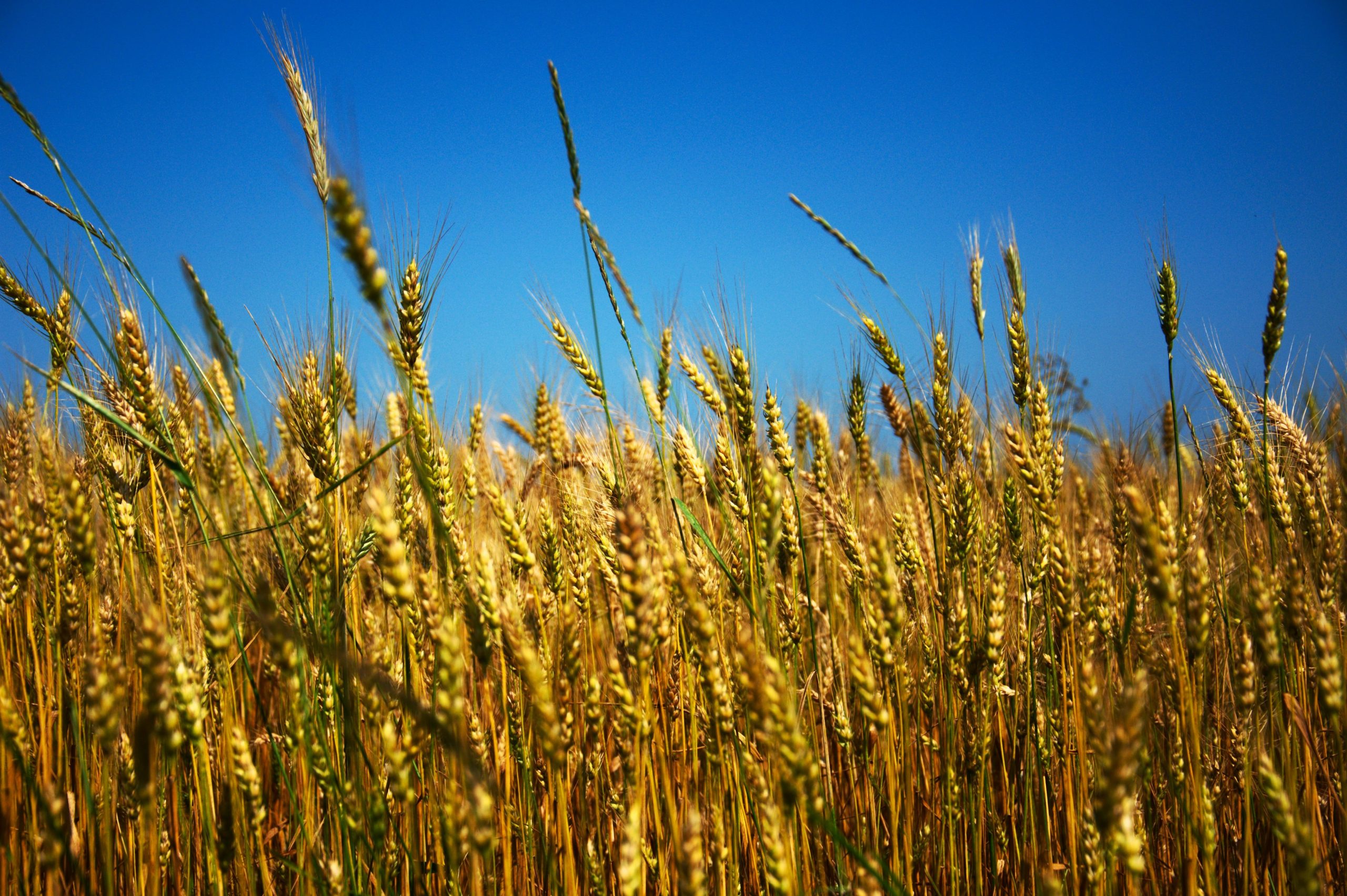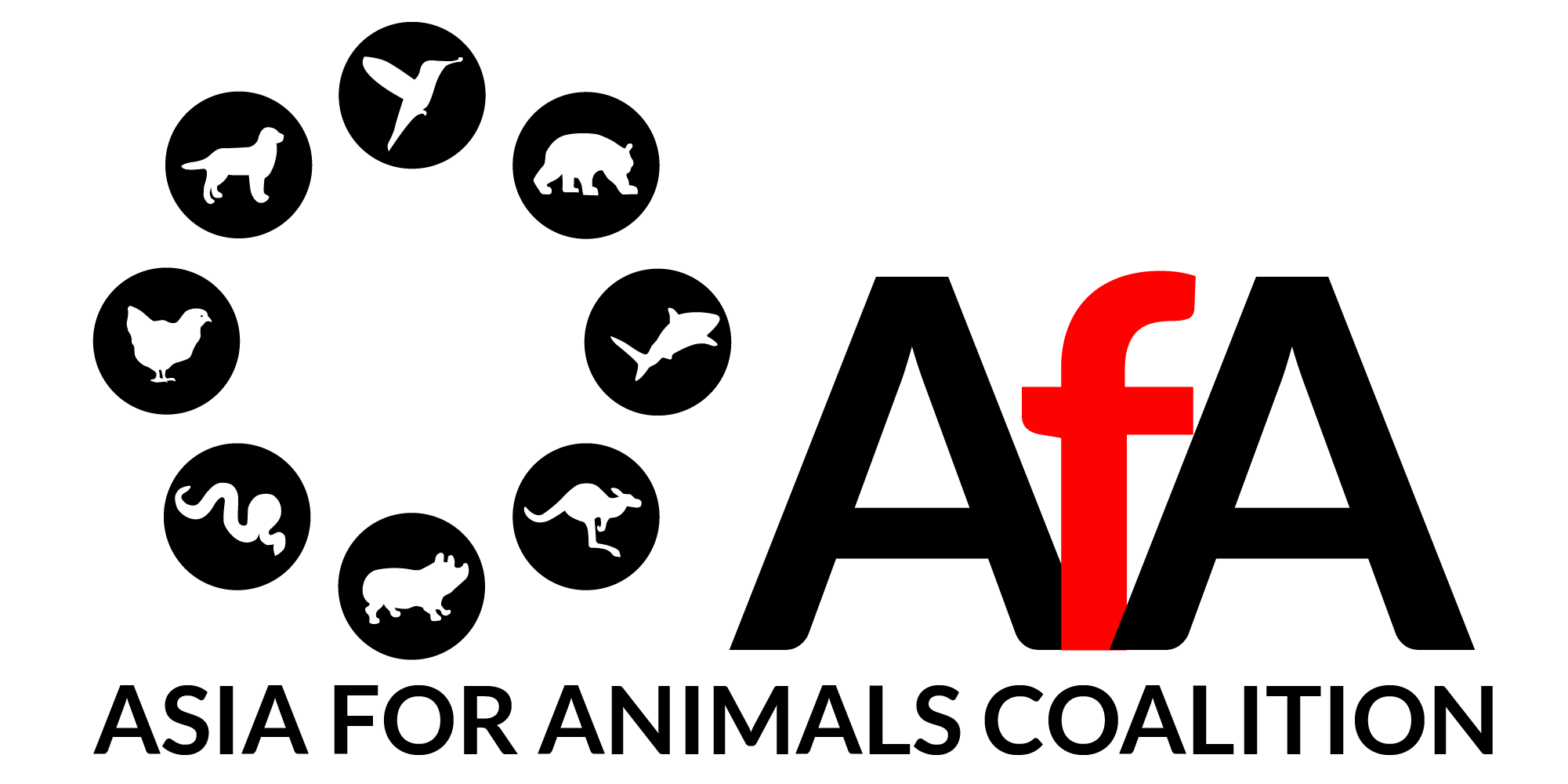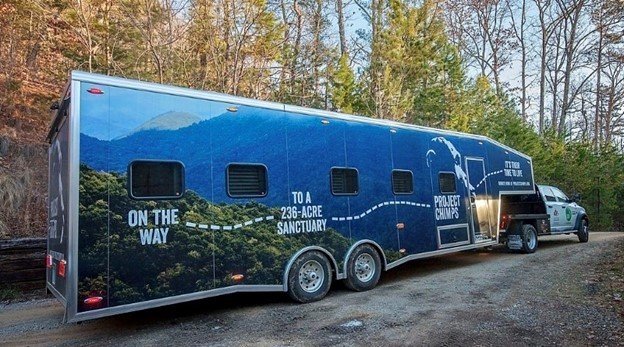How You Can Help Animals in Ukraine
 Like many of you, we at GFAS have watched the crisis unfolding in Ukraine with horror. As a global animal protection organization, we are keeping close tabs on how our mission can support animals there. In that vein, we have worked in conjunction with our colleagues at Species Unite and Eurogroup for Animals to compile resources for those wishing to help animals affected by the war. GFAS continues to network with local and international animal welfare groups to support all efforts on the ground to rescue those in harm’s way.
Like many of you, we at GFAS have watched the crisis unfolding in Ukraine with horror. As a global animal protection organization, we are keeping close tabs on how our mission can support animals there. In that vein, we have worked in conjunction with our colleagues at Species Unite and Eurogroup for Animals to compile resources for those wishing to help animals affected by the war. GFAS continues to network with local and international animal welfare groups to support all efforts on the ground to rescue those in harm’s way.
According to our sources, the situation for sanctuaries and shelters in Ukraine is dire. While many people are evacuating the country with their personal pets, often simply carrying them in their arms, shelters and sanctuaries are largely forced to shelter in place due to the difficult logistics of evacuating such a large number of animals through a war zone filled with bombing, active crossfire, and blocked roads. Several shelters have been shelled and lost animal lives and parts of their building. The others have dwindling supplies, including food and water, and patchy access to electricity.
There have been massive efforts at the Romanian and Polish borders to bring aid and supplies, as well as to accept refugee animals into neighboring shelters and sanctuaries. We are told by contacts at the border that NGOs are not being allowed into Ukraine, but supplies brought to the border are being distributed by the government in country. Most EU member countries have waived animal health documentation to cross the border and host countries are offering veterinary services.
If you’re able to contribute to aid efforts or share this vital information visit: https://sanctuaryfederation.org/2022/03/04/heres-how-you-can-help-animals-caught-in-the-ukraine-crisis/
Please also consider supporting our friends at IFAW, HSI, and Four Paws, who are all providing emergency relief to Ukraine.
 Have you herd? Our episode on Herd Around the Barn, the podcast by Carole Noon Award recipient Kathy Stevens of Accredited Catskill Animal Sanctuary, dropped on February 23!
Have you herd? Our episode on Herd Around the Barn, the podcast by Carole Noon Award recipient Kathy Stevens of Accredited Catskill Animal Sanctuary, dropped on February 23!
Have you ever wondered what sets apart one animal sanctuary from the next? It can be hard to decide which to support when they all seem to work towards the same goal. Kathy and Jessica Harris, our Farmed Animal Program Director discuss
- Jessica’s path to working in animal rights, and particularly in her current role to support the work of farmed animal sanctuaries
- The important work of the Global Federation of Animal Sanctuaries to certify well-practiced organizations around the world as top animal protection charities
- The unfortunate path of some sanctuaries that become hoarding situations
- The invaluable lessons gained in her unique job, and how she applies those lessons to her work
- Raising a vegan child and bringing her to CAS, where she met and fell in love with many different animals
You can stream the episode here.
GFAS Joins the Asia for Animals Coalition!
 GFAS is excited to announce that we have joined the Asia for Animals Coalition, becoming the 24th member among a coalition of NGOs that work together, and with a vast network of global animal welfare organizations, to improve the welfare of animals in Asia and present a shared voice in opposition to animal cruelty.
GFAS is excited to announce that we have joined the Asia for Animals Coalition, becoming the 24th member among a coalition of NGOs that work together, and with a vast network of global animal welfare organizations, to improve the welfare of animals in Asia and present a shared voice in opposition to animal cruelty.
Our first action was to join one of the Coalition’s working groups, the Social Media Animal Cruelty Coalition (SMACC), which confronts the harmful impact of depictions of animal abuse and cruelty on social media platforms. These depictions, including those showing the exploitation of wildlife for entertainment or as illegally held “pets”, are often contributing factors among the root causes that bring wildlife into captivity, resulting in the ongoing need for sanctuaries to rescue animals from cruel conditions.
We look forward to collaborating with the other organizations within the AfA Coalition to make change for animals and further our mission of raising awareness of the important work of sanctuaries and rescue centers in Asia and worldwide. To learn more about the Asia for Animals Coalition, visit www.asiaforanimals.com.
Webinar Recap: Ethical Animal Tourism
Furthering GFAS’ mission to recognize true sanctuaries and raise awareness of their work, we were excited to present, in partnership with the Pan African Sanctuary Alliance (PASA), a recent webinar on “Ethical Tourism: the Sanctuary Perspective.” Our live audience of sanctuaries, tourism companies, and other interested members of the public from 14 different countries listened as our speakers talked about what ethical tourism means, the variety of activities they offer to visitors and volunteers, and some of the challenges they face.
At its core, ethical animal tourism means that animal welfare comes first – animals are not exploited, are not made to perform for the public, and are not subjected to “pay to play” activities that put visitors in direct contact with wildlife and risk the safety of both animals and the public. These principles are reflected in the GFAS standards.
In the webinar, we heard two sanctuary perspectives: Kareen Zabow, ecotourism manager for PASA member Tacugama Chimpanzee Sanctuary in Sierra Leone, and Anna Bryant, biology coordinator and volunteer manager at GFAS accredited ARCAS Wildlife Rescue and Rehabilitation Center in Guatemala, both spoke about the considerations that guide their visitor and volunteer offerings, as well as the challenges they face. Our other presenters were Tiffany James, who has volunteered at several PASA member sanctuaries and who shared some practical tips on what to look for in an ethical volunteer experience, and Daniel Turner, director of the travel consultancy ANIMONDIAL, who offered advice on how to communicate with the tourism industry about ethical animal experiences.
If you missed the webinar, you can watch the recording and download the presentation slides on our YouTube channel at: https://youtu.be/LN5ap9BGY74.
Are you a GFAS Certified group, a GFAS partner, or looking for a job in the animal welfare industry? If you fall into any of those categories, please make sure to keep an eye on our Job and Volunteer Listings page. This page is updated frequently, so make sure to keep checking back. If you are a GFAS Certified organization and would like to post any opportunities on this page, you can email that information to .
Highlighting GFAS Accredited Days End Farm Horse Rescue in Maryland
 One of Maryland’s oldest and most respected equine rescue and rehabilitation facilities is Days End Farm Horse Rescue (DEFHR). Established in 1989, Days End Farm is well known for sheltering 110 to 150 equines annually all of whom arrive from animal protection services. What may not be as well known, are Days End Farm’s creative community outreach and education programs. During these last couple of years, developing unique revenue streams and ingenious learning opportunities is the hallmark of an organization determined to continue to make a difference in the lives of at-risk and in-need equines despite challenges.
One of Maryland’s oldest and most respected equine rescue and rehabilitation facilities is Days End Farm Horse Rescue (DEFHR). Established in 1989, Days End Farm is well known for sheltering 110 to 150 equines annually all of whom arrive from animal protection services. What may not be as well known, are Days End Farm’s creative community outreach and education programs. During these last couple of years, developing unique revenue streams and ingenious learning opportunities is the hallmark of an organization determined to continue to make a difference in the lives of at-risk and in-need equines despite challenges.
Camp-in-a box, offered by DEFHR, provides children with hands-on projects, DIY experiments, online videos and other activities involving horses. Over six weeks, children explore horse and environmental themes from learning the parts of a horse to what they eat, why clean water is important, and how all of nature interacts together.
Another program of DEFHR is Equidopt. Participants ‘adopt’ one of the resident horses and through weekly grooming sessions and one-on-one time, develop special bonds with horses who may have had little positive human attention in their lives. All participants receive a DEFHR-branded grooming kit and opportunities to participate in ground-work clinics.
To learn more about the many educational programs provided by Days End Farm Horse Rescue, visit https://www.defhr.org/.
Project Chimps: Always on the Move
 Tucked into the heart of the beautiful Blue Ridge mountains of Georgia, sits GFAS Accredited, Project Chimps, a sanctuary caring for 81 chimpanzees formerly used in research studies at the New Iberia Research Center in Louisiana. The chimps spend their time engaging enrichment items and devouring fruits and vegetables offered by a team of caregivers that are dedicated to each chimp’s health and wellbeing. The natural bounty surrounding the sanctuary and burgeoning gardens overseen by volunteers, allow the chimps to enjoy a wide variety of produce and browse grown right at home.
Tucked into the heart of the beautiful Blue Ridge mountains of Georgia, sits GFAS Accredited, Project Chimps, a sanctuary caring for 81 chimpanzees formerly used in research studies at the New Iberia Research Center in Louisiana. The chimps spend their time engaging enrichment items and devouring fruits and vegetables offered by a team of caregivers that are dedicated to each chimp’s health and wellbeing. The natural bounty surrounding the sanctuary and burgeoning gardens overseen by volunteers, allow the chimps to enjoy a wide variety of produce and browse grown right at home.
The public is invited to engage and support Project Chimps through scheduled educational tours, themed events throughout the year and access to extensive hiking trails on the property. For those wishing to learn more about the individual chimp residents, sanctuary life and chimp behavior from the comfort of home or in the classroom, Project Chimps has a vast array of online resources including webinars, videos and teacher resources.
 In addition to everything Project Chimps provides for their residents and the public, the organization is also a trusted team player among its sanctuary peers. Several months after Wildlife Waystation in California shut down, and hundreds of animals had been relocated, 41 chimpanzees still remained on the property patiently waiting for somewhere to go. As soon as enclosure space was constructed, Project Chimps generously donated their seasoned transport teams and state-of-the-art trailer to begin delivering these deserving chimps to their forever homes. The team has already logged thousands of miles transporting groups of chimps to Chimpanzee Sanctuary Northwest in Cle Elum, Washington and Center for Great Apes in Wauchula, Florida.
In addition to everything Project Chimps provides for their residents and the public, the organization is also a trusted team player among its sanctuary peers. Several months after Wildlife Waystation in California shut down, and hundreds of animals had been relocated, 41 chimpanzees still remained on the property patiently waiting for somewhere to go. As soon as enclosure space was constructed, Project Chimps generously donated their seasoned transport teams and state-of-the-art trailer to begin delivering these deserving chimps to their forever homes. The team has already logged thousands of miles transporting groups of chimps to Chimpanzee Sanctuary Northwest in Cle Elum, Washington and Center for Great Apes in Wauchula, Florida.
Over the next few years, an exciting new expansion project will bring additional habitats and indoor housing to current residents and make room for the remaining chimpanzees at New Iberia Research Center to be moved over and to experience true sanctuary for the rest of their lives.
To learn more about Project Chimps, please visit: projectchimps.org.
New Certifications and Renewals
Over the past month, GFAS has certified two new groups and renewed one GFAS organization! Congratulations to all these groups!
New Certifications
Flicka Foundation Donkey Sanctuary, United Kingdom
Iowa Farm Sanctuary, Iowa
Renewals
